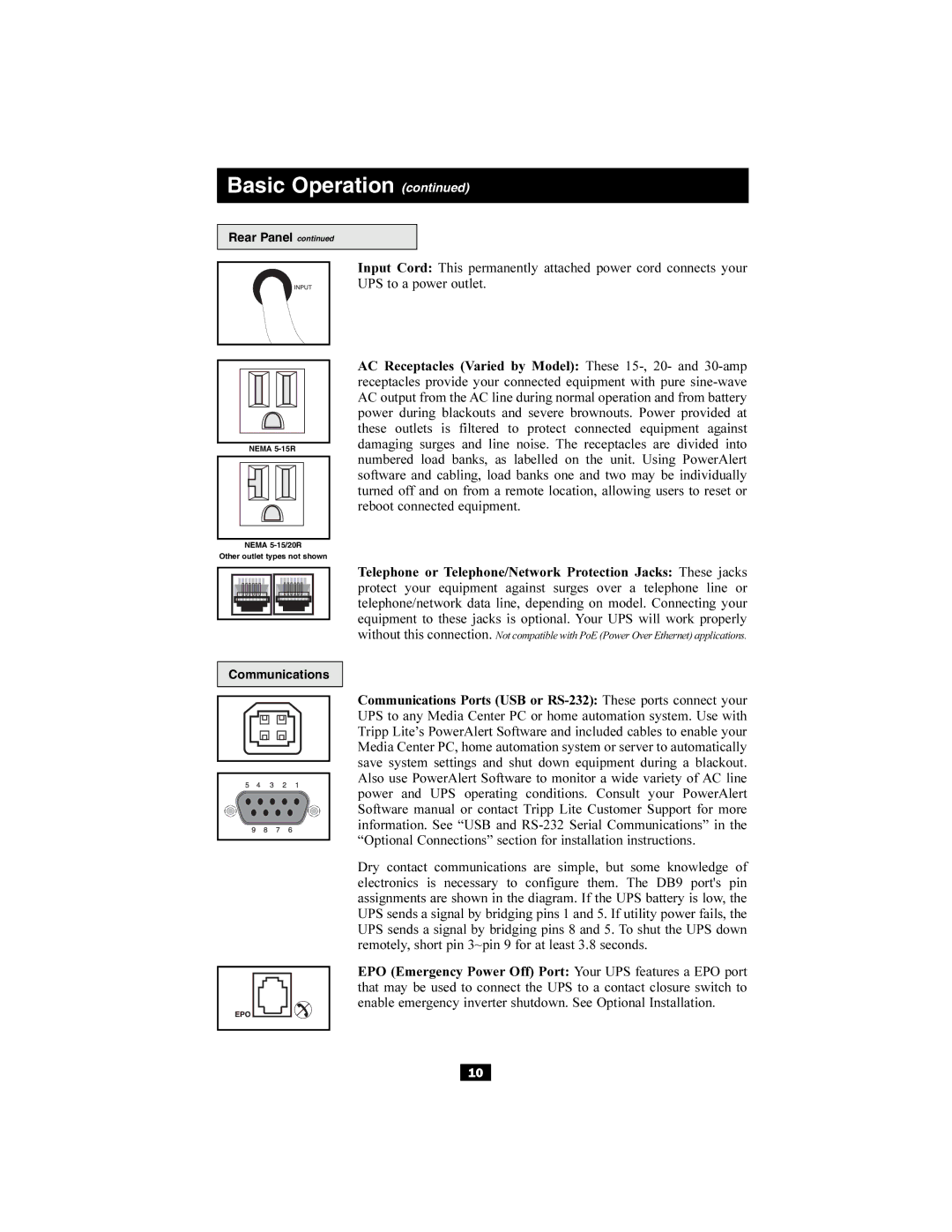Not compatible with PoE (Power Over Ethernet) applications.
Basic Operation (continued)
Rear Panel continued
Input Cord: This permanently attached power cord connects your UPS to a power outlet.
AC Receptacles (Varied by Model): These 15-, 20- and 30-amp receptacles provide your connected equipment with pure sine-wave AC output from the AC line during normal operation and from battery power during blackouts and severe brownouts. Power provided at these outlets is filtered to protect connected equipment against damaging surges and line noise. The receptacles are divided into numbered load banks, as labelled on the unit. Using PowerAlert software and cabling, load banks one and two may be individually turned off and on from a remote location, allowing users to reset or reboot connected equipment.
NEMA 5-15/20R
Other outlet types not shown
Telephone or Telephone/Network Protection Jacks: These jacks protect your equipment against surges over a telephone line or telephone/network data line, depending on model. Connecting your equipment to these jacks is optional. Your UPS will work properly without this connection.
Communications
Communications Ports (USB or RS-232): These ports connect your UPS to any Media Center PC or home automation system. Use with Tripp Lite’s PowerAlert Software and included cables to enable your Media Center PC, home automation system or server to automatically save system settings and shut down equipment during a blackout. Also use PowerAlert Software to monitor a wide variety of AC line power and UPS operating conditions. Consult your PowerAlert Software manual or contact Tripp Lite Customer Support for more information. See “USB and RS-232 Serial Communications” in the “Optional Connections” section for installation instructions.
Dry contact communications are simple, but some knowledge of electronics is necessary to configure them. The DB9 port's pin assignments are shown in the diagram. If the UPS battery is low, the UPS sends a signal by bridging pins 1 and 5. If utility power fails, the UPS sends a signal by bridging pins 8 and 5. To shut the UPS down remotely, short pin 3~pin 9 for at least 3.8 seconds.
EPO (Emergency Power Off) Port: Your UPS features a EPO port that may be used to connect the UPS to a contact closure switch to enable emergency inverter shutdown. See Optional Installation.

